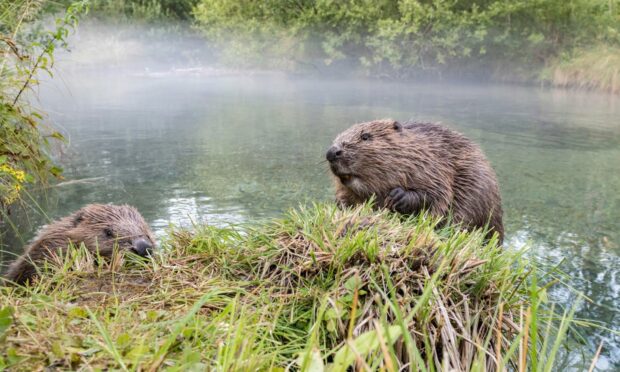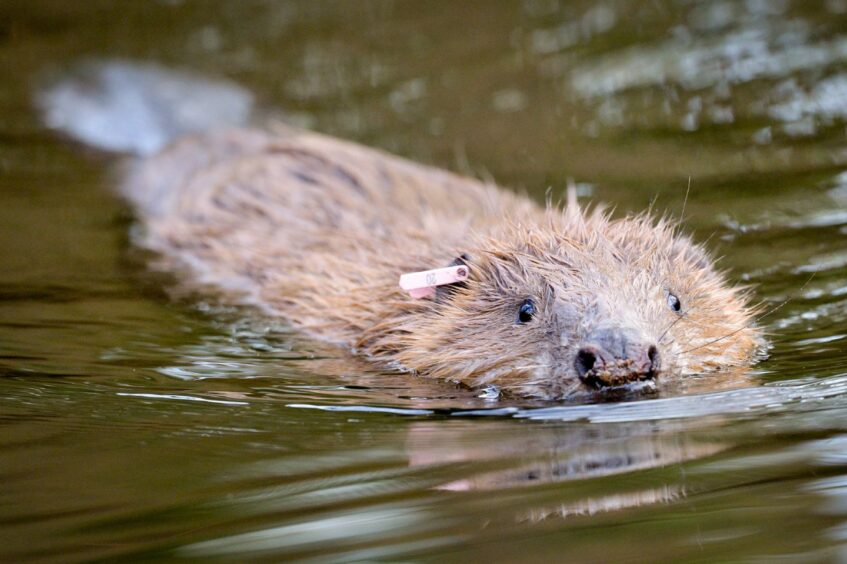A rewilding charity and Scottish Government nature agency NatureScot have both claimed victory in a legal dispute over the killing of protected beavers.
Trees For Life challenged NatureScot over its failure to make the killing of wild beavers a last resort when the animals require to be managed.
In a legal challenge heard at the Court of Session in Edinburgh, it said NatureScot was breaking the law and causing needless loss of beavers’ lives.
The Forres-based charity said the ruling by Lady Carmichael today confirmed that licensed killings of beavers authorised by NatureScot have been “unlawful and have been revoked”.
It added that NatureScot must now set out “openly and fully” the reasons why it believes any future licence to kill beavers should be granted.
NatureScot meanwhile said the court’s decision had “vindicated” its licensing approach. It did concede the court had found one complaint to be “well founded”, that it had not issued written reasons with licenses, and said it would review this “carefully over the coming days”.
‘A better future for beavers’
Alan McDonnell, Trees for Life conservation manager, said: “This result offers a better future for Scotland’s beavers.
“The Scottish Government must take this ruling seriously, and it means that from here on in there can be no more rubber-stamping of licensed killing of beavers. This is an important victory for accountability and transparency, which will benefit everyone including conservationists and farmers.”
Eurasian beavers are native to the UK but became extinct in the 16th century, primarily due to hunting. The animals were officially reintroduced to Scotland in 2009, as part of the first trial of its kind for the species.
Beavers create wetlands that can benefit other wildlife, reduce flooding and improve water quality, but the animals can also cause damage to farmland.
The Scottish Government declared beavers a legally protected species in 2019, requiring those wanting to kill beavers or remove their dams or lodges to obtain a licence from NatureScot.
NatureScot has since allowed more than 200 beavers to be killed under license, even though laws on protected species require management to have the least possible impact on their conservation status.
Four of the five criticisms rejected
Commenting on the judicial review ruling, NatureScot’s director of sustainable growth Robbie Kernahan said: “We welcome the court’s decision which, for the most part, vindicates our licensing approach.
“We have been successful on all points of law except that we should have issued written reasons with each licence to explain why it had been granted. We will be reviewing this carefully over the coming days to ensure the finding of the court is reflected in our licensing approach.
“Of the five complaints under consideration by the court, four were rejected entirely. The court found only one complaint to be well founded – not issuing written reasons with licenses – on what amounts to a technical point of law.
“Most importantly, the criticism of our underlying licensing decisions was entirely rejected by the court and this does not affect the legality of any acts carried out under the affected licences.
“We have been working with partners for 25 years to bring back beavers to Scotland because of the many benefits they bring to both people and nature, particularly in this crucial time of climate emergency. We will continue to listen to and respond to all those involved, through the Scottish Beaver Forum and other avenues, to make licences fair and proportionate.
“But in certain circumstances, beavers can cause problems. In those specific situations where beavers pose a risk of serious damage to farmland or where they occasionally cause a public health and safety concern, we issue species control licences accordingly.”
Trees for Life has argued for relocating beavers to new areas of Scotland instead of killing them, and called for NatureScot to rethink its approach.
‘Lethal control should be a last resort’
Last year, a Trees For Life petition to the Scottish Parliament, calling for the Scottish Government to relocate rather than shoot beavers, was signed by nearly 17,000 people.
The charity raised more than £60,000 for its legal challenge through a month-long crowdfunder.
Mr McDonnell added: “By moving rather than shooting beavers, we can help them get to work boosting biodiversity, tackling climate breakdown and creating wildlife tourism opportunities.
“The Scottish Government has been blocking relocation of beavers to areas of Scotland where they belong but are missing, but today’s ruling creates hope that this will change so that farmers will no longer be put in a position where they have no choice but to shoot much-loved animals.”
Sarah-Jane Laing, chief executive of Scottish Land & Estates, the membership organisation for landowners, rural businesses and rural professionals, said: “We are pleased that the Court of Session has chosen to uphold the existing beaver management framework as a sound system through which farmers and land managers deal with negative impacts from beavers such as the destruction of trees and habitat.
“The framework is the best way forward to balance conflicts between conservation and land management and those who require licences can look forward to them being granted in appropriate circumstances in future.”
She added: “We continue to hold the view that lethal control should only be used as a last resort, and greater resources from government and other organisations will allow intervention to occur earlier where required.”

